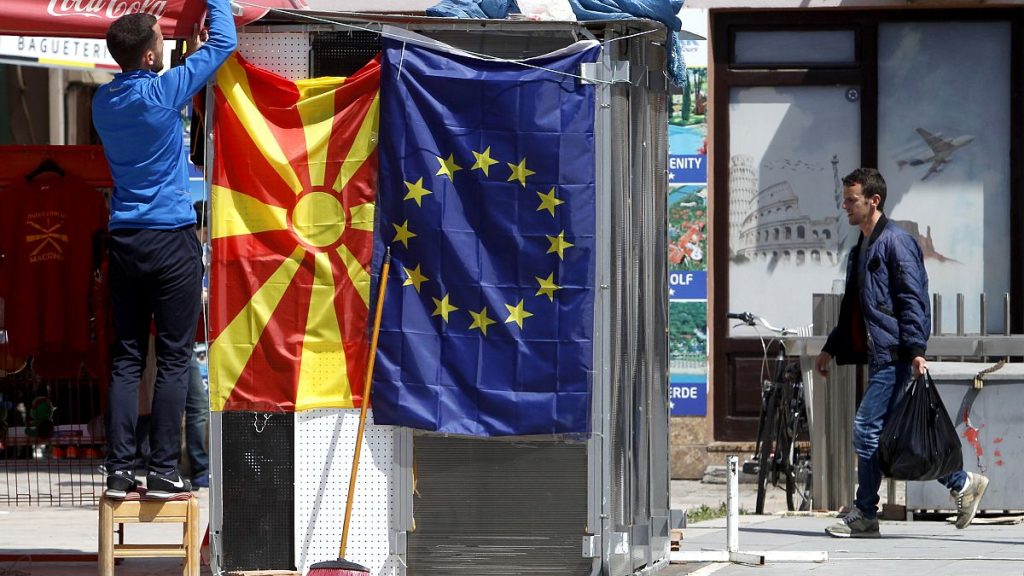North Macedonia’s president and prime minister have expressed frustration with the obstacles placed by the European Union due to a dispute with Bulgaria over Balkan history, language, and culture. The conservative Prime Minister Hristijan Mickoski accused the EU of trying to dictate what North Macedonia should do and expressed his unwillingness to accept any further delays in membership talks with the bloc. Reports emerged that EU ambassadors decided to independently move forward with Albania’s EU accession process, creating a separation between Albania and North Macedonia’s negotiating paths.
The European Commission confirmed that the two countries are on different tracks or time frames in terms of their EU accession process. The EU initiated membership talks with Albania and North Macedonia in 2022, altering their previously stagnant bids after the war in Ukraine prompted a rethink of the bloc’s enlargement process. However, North Macedonia’s bid was hindered by a dispute with Bulgaria over Balkan history, language, and culture. While the previous centre-left government in Skopje attempted to break the impasse by accepting a Bulgarian demand to insert a reference to a Bulgarian ethnic minority in North Macedonia’s constitution, the lack of parliamentary majority prevented the change from taking place.
Prime Minister Mickoski’s new conservative government has taken a stand, stating that they will only consider amending the constitution if Bulgaria first approves North Macedonia’s EU membership. Mickoski argued against linking his country’s EU prospects with Bulgaria’s demands, characterizing the approach as unfair and dictatorial. President Gordana Siljanovska-Davkova expressed similar sentiments at the UN General Assembly, comparing North Macedonia’s path to EU membership to waiting for Godot. She highlighted the protracted negotiations and repeated demands requested of the country over the years, emphasizing the challenges faced along the way.
The history of North Macedonia’s EU accession hurdles includes a longstanding dispute with neighboring Greece, which was resolved in 2018 after North Macedonia changed its name from “the Republic of Macedonia”. The main opposition Social Democrats’ leader Venko Filipche criticized Mickoski’s government for the new setback in North Macedonia’s EU accession journey. Filipche labeled it as a significant disaster for the citizens and a missed opportunity that would impact many families and future generations. The current impasse underscores the complex political dynamics at play in the Balkans and the challenges faced by countries aspiring to join the European Union.
The ongoing tensions between North Macedonia, Bulgaria, and other neighboring countries in the Balkans highlight the intricate historical and cultural complexities that affect the region’s political landscape. The differing perspectives on issues such as history, language, and identity continue to pose challenges to regional cooperation and EU integration efforts. The European Union plays a crucial role in mediating disputes and fostering dialogue between countries in the Western Balkans, seeking to address longstanding grievances and promote stability in the region. The current impasse between North Macedonia and Bulgaria underscores the need for continued diplomatic efforts and compromise to overcome historical grievances and advance the shared goal of European integration.













